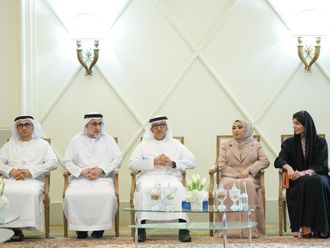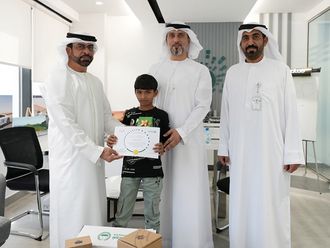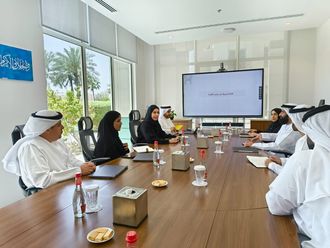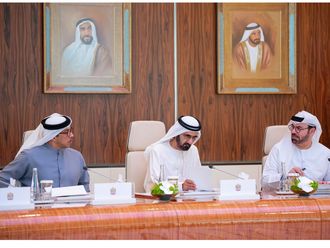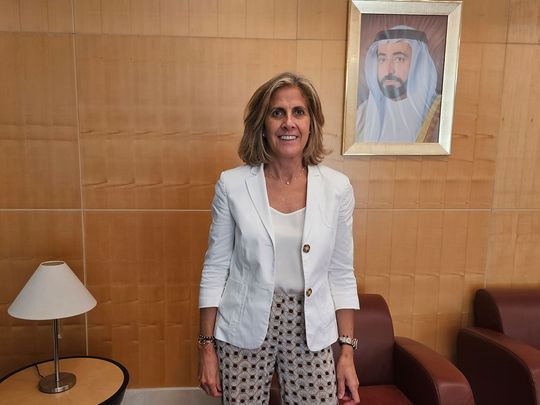
Sharjah: Núria Cabutí, CEO of Penguin Random House Grupo Editorial, the largest Spanish-language publishing house in the world, is attending the Sharjah internation Book Fair (SIBF) for the first time. All excited, she told Gulf News, “I have been hearing of this book fair for many years. But I had never really got the opportunity to learn more about it until last year when Sharjah Book Authority representatives came to a book fair in Guadalajara in Mexico. We met, exchanged ideas and then I got invited to come to Sharjah.”
Cabuti is hoping that by coming here, there will be an increase in cultural exchanges between the Spanish-speaking world and Arab countries. “I think we could learn a lot from each other. I hope that this is the start of a new relationship,” she hoped.
Cabuti said, “Our main role as editors is to connect with our readers, and really have them getting to know the works and having people to read all these works.”
She said, “I am excited to be able to participate in SIBF and have the opportunity to build synergies with the people here. It’s an opportunity to get to know new markets and meet publishers and authors from different cultures, but with common interests.”
Arab-Spanish ties
According to her, Spanish and Arabic publishing industries have many things in common. “I am responsible for the Spanish-speaking boundaries for Penguin Random House. We have companies in nine countries in the world for the Spanish market.
"Arabic is the fifth most-spoken language in the world, with around 400 million speakers. And Spanish reaches 600 million speakers. For that reason, I think this is a very interesting market with a huge growth potential. In addition to making our authors known to Arab audiences, this could be a sterling opportunity to discover new writers and make new books available to Spanish readers. We hope to do some deals that will see us translating the big names on our backlist into Arabic. The challenge, though, is to acquire understanding of Arab culture in order to comprehend the interests and preferences of a hitherto little-explored market,” she said.
As the head of a publishing house, she had some advice to other publishers with respect to technology. “Technology is exerting an increasing impact on different aspects of our lives, and in the book market as well. For example, technology makes it possible for us to reach more readers and offer them new reading experiences, such as audiobooks, which give us the possibility to enjoy content in a different, more immersive way, letting others, in some cases the authors themselves, tell us the story," she said.
Print vs digital
Our experience tells us that the different formats will coexist in the long term. Most people prefer print, which represents 90 per cent of our sales, but an increasing number of readers have come to enjoy reading through digital media. Artificial Intelligence also poses a very important challenge to our industry. It is essential that we analyse and gain an in-depth understanding of AI to be able to make the most of its advantages, making sure that our authors and readers also benefit from them. We must be open to whatever breakthroughs may be coming our way and learn to make the most of what they may offer but always protecting the intellectual property and the interests of our authors.”
She said in the Spanish market, digital books account for only only 10 per cent of sales, while the remaining 90 per cent is about “paper sales”. “Audibooks will be growing in the next few years, that’s why we are investing heavily in them,” she added.



